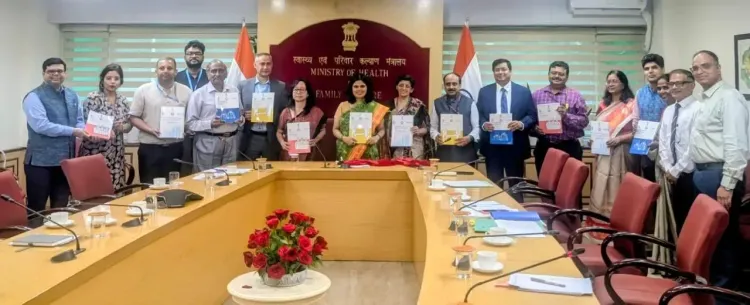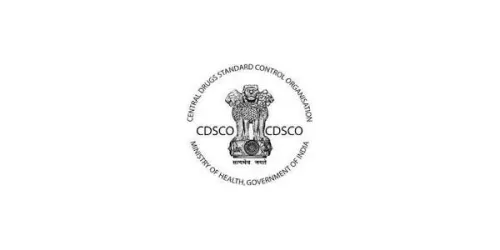How is the Govt Enhancing Management of Chemical Emergencies?

Synopsis
Key Takeaways
- Three specialized modules for chemical emergency management.
- Focus on preparedness, response, and medical management.
- Collaboration with international organizations for effective training.
- Importance of readiness in a rapidly industrializing nation.
- Aims to enhance public health safety and environmental protection.
New Delhi, Oct 23 (NationPress) The Union government has introduced essential training modules aimed at empowering public health professionals and responders with the critical knowledge and skills needed for the prompt and effective management of chemical incidents.
The unveiling of these modules, a significant move towards improved preparedness, was conducted by Punya Salila Srivastava, the Secretary of Health and Family Welfare, alongside senior officials from various ministries at Nirman Bhawan, New Delhi.
According to the Ministry of Health, chemical emergencies present a considerable and evolving threat to public health, environmental integrity, and societal stability, highlighting the urgent necessity for enhanced national preparedness and response strategies.
In today's rapidly evolving industrial landscape, maintaining readiness for such emergencies is of utmost importance, the ministry emphasized.
The specialized training modules, segmented into three parts, were crafted by the National Centre for Disease Control (NCDC), Ministry of Health and Family Welfare (MoHFW), in partnership with the National Disaster Management Authority (NDMA) and with technical assistance from the World Health Organization (WHO India).
Module 1 focuses on preparedness, surveillance, and response strategies for public health management during chemical emergencies.
Module 2 discusses pre-hospital management of chemical incidents, covering identification and assessment of chemical threats, patient triage and decontamination, and effective use of personal protective equipment.
Module 3 outlines medical management of chemical emergencies, addressing various topics such as in-hospital patient triage, hospital decontamination, initial assessment and management, and the correct usage of personal protective gear.
As India continues to establish itself as a leading global center for industrial and technological growth, the risk of exposure to chemical hazards is also on the rise.
The uncontrolled release of such substances could have dire consequences for public health and the environment, potentially leading to significant chemical emergencies. These incidents can severely impact human health, often resulting in casualties, long-term effects, and damage to property and the environment.
In this context, these modules are designed to prepare public health professionals, healthcare workers, emergency responders, and policymakers with the essential knowledge, skills, and operational tools for the timely and effective management of chemical incidents, according to the Ministry.
Improving the management of chemical emergencies also bolsters core capacities under the International Health Regulations (IHR 2005), enhancing both national and global health security, the Ministry noted.









